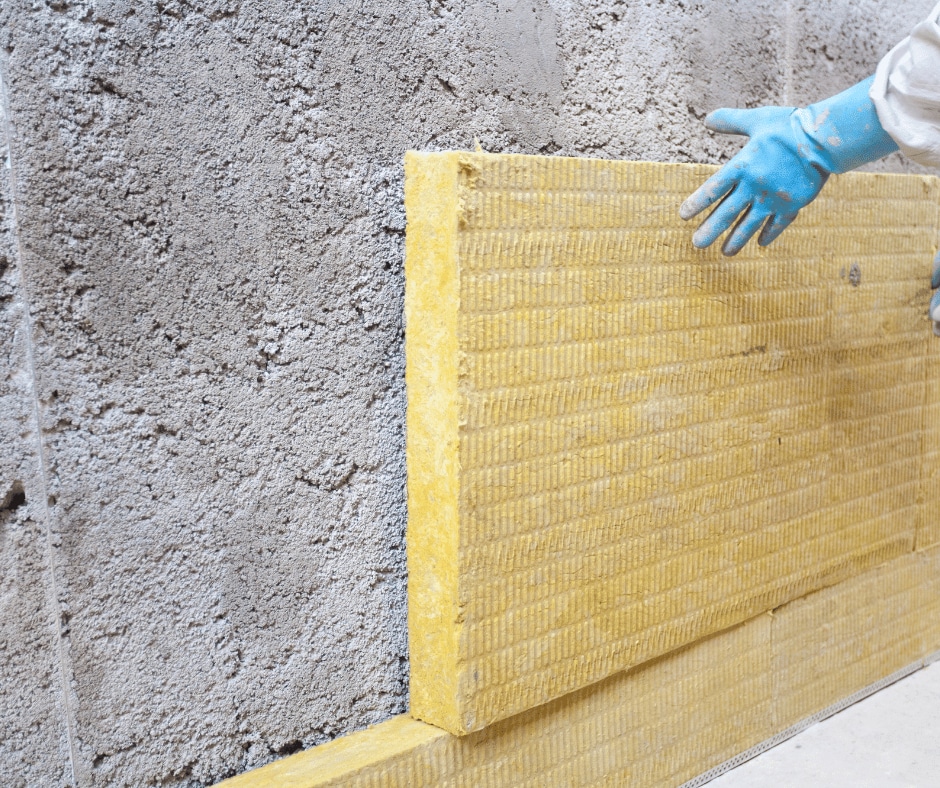Insulating your home is an important step in maintaining an efficient and comfortable living environment. Insulation services involve the insulation of walls, ceilings, basements, and attics using products such as fiberglass, stone wool, and spray foam to prevent air leakage. It helps to regulate your home’s temperature in both the summer and winter months, resulting in lower heating and cooling costs. Additionally, proper insulation also creates a quieter interior, thus allowing you greater peace and quiet while inside. By investing in top-quality insulation services from a professional company, you can drastically improve the comfort of your home while significantly reducing monthly energy costs.
What Are the Different Types of Insulation?
There are several different types of insulation that can be used for any type of project. As a homeowner, you can choose from various kinds including spray foam, rigid board foam, fiberglass, rock wool batting, cellulose, and natural fiber. Each type of insulation has its own unique set of benefits and drawbacks depending on the space being insulated. Spray foam and rigid board foams are ideal for covering large open spaces such as unfinished walls or attics and provide the most amount of energy savings over time when compared with traditional materials. Fiberglass and rock wool offer effective protection against heat loss while remaining lightweight and easy to install. Cellulose is a recycled material made from paper which is then treated with fire retardant chemicals to help control air infiltration within your home. Finally, natural fiber insulation such as sheep’s wool, cotton, or coconut fiber offers excellent thermal efficiency while also regulating humidity levels within your home making it an eco-friendly alternative to traditional materials. Ultimately, the right insulation will depend on your individual needs – so be sure to research each of these options before settling on the perfect choice for your project!
What Are the R-Values of Insulation?
Insulation plays an important role in buffering heat transfer, and knowing the R-values of insulation can help you determine which type to use for your particular project. Generally, R-values are a measure of an insulation’s resistance to heat transfer and range from 0 – 8 per inch of thickness. Foam insulation is popular among do-it-yourselfers because it is relatively inexpensive and easy to install, while fiberglass batting has a higher R-value than most types of spray foam. For example, common fiberglass insulation has an R-value of 3.2 per inch while closed-cell spray foam insulation has an R-value as high as 6 per inch. Of course, selecting the right type of insulation depends on many factors such as climate zone and area to be insulated, so always consult with a professional first before deciding which type to use for your specific project.
Can You Install Insulation Over Existing Insulation?
Insulation is an essential element to consider when constructing or renovating a home. It keeps warm air in the winter and cool air in the summer, increasing energy efficiency year-round. Many homeowners may wonder if they can install insulation over existing insulation in their homes. The answer to this depends on the type of insulation already present. If it’s batt insulation with no airspace between layers, adding additional batt to the existing hold will do little to increase R-value; however, sprayed foam insulation is effective when it covers previous layers and is a great consideration for homeowners looking to go beyond just batt insulation. While insulating over different types of existing products isn’t recommended due to potential moisture and temperature control issues, speaking with a qualified contractor prior to installing new insulation can provide helpful insight on exactly how much combined coverage is necessary for maximum R-value benefit.
Benefits of Installing Insulation
Installing insulation in your home has a number of important benefits. It improves the energy efficiency of the space by creating an effective barrier between indoors and outdoors, preventing heated or cooled air from escaping. That can lead not just to lower energy bills but also to enhanced year-round comfort. The material itself also acts as a soundproofing agent, blocking exterior noises and vibrations to create a quieter interior atmosphere. And that’s not all; properly insulated buildings reduce mold risk, guard against water damage and pests, and can even raise the resale value of your house should you choose to sell it in the future. All in all, adding insulation is an easy way to improve your home’s comfort and safety while potentially boosting savings at the same time.
Green Smart Insulation Is Here to Help
At last, a better insulation solution is here! Green Smart Insulation offers superior insulation services that help to regulate temperature and reduce energy costs in any space. Not only are their services eco-friendly, but they are also very reliable and cost-effective. With their state-of-the-art tools and experienced technicians, they provide the highest quality of work in the most minimal amount of time. For those looking for a more energy-efficient home or office building, Green Smart Insulation has got you covered!

